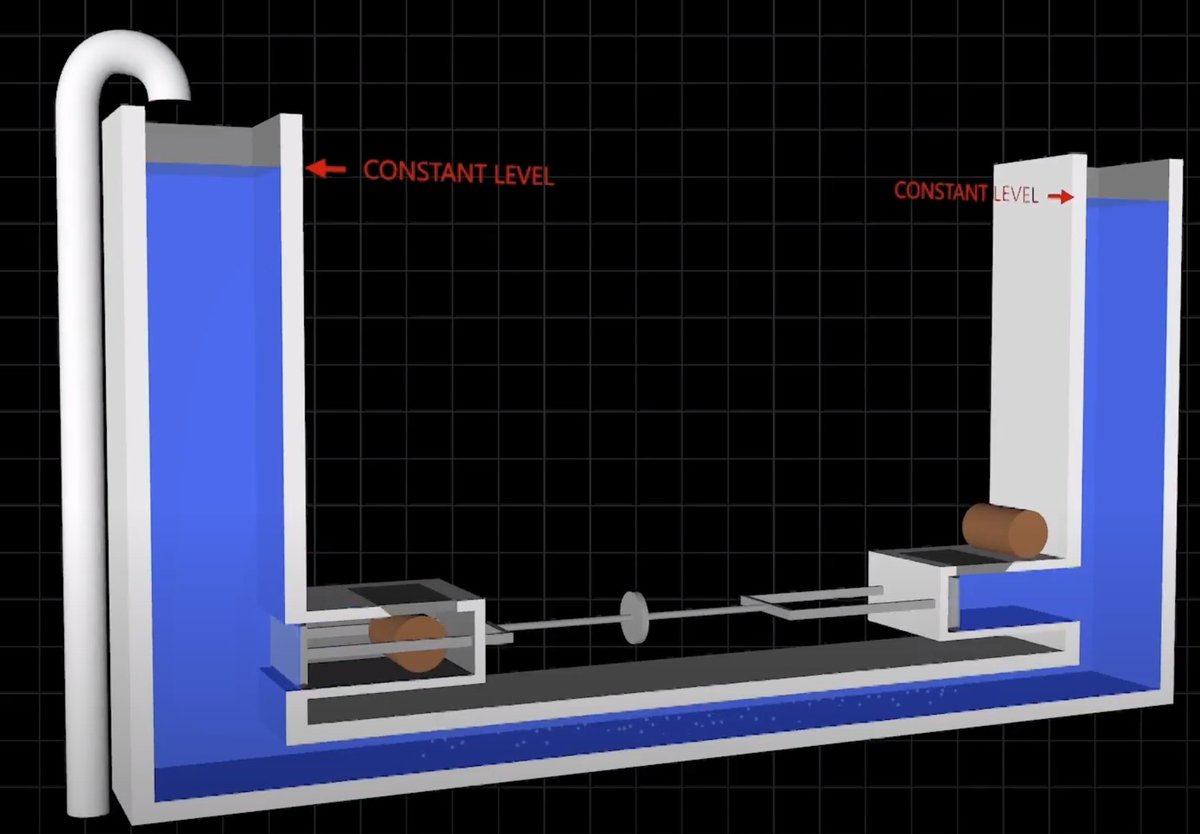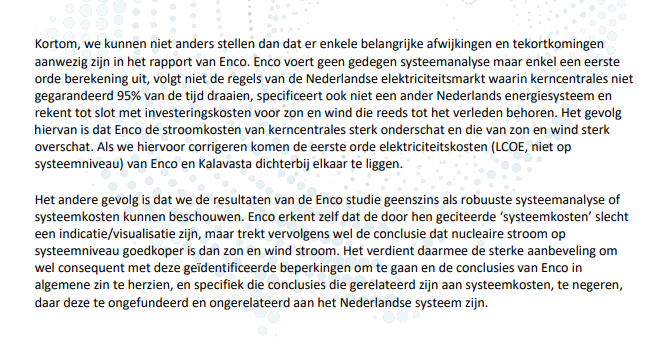
Miracle cure eFuels comes to the rescue of the German car industry! That is what I understand from the recent reactions in German politics. E.g. from @_FriedrichMerz (@CDU) as discussed by @Stefan_Hajek in @wiwo.
Unfortunately, reality is uncooperative.
wiwo.de/technologie/fo…
Unfortunately, reality is uncooperative.
wiwo.de/technologie/fo…
You see, it IS eminently possible to power the trusted combustion engine with fuels that are produced using low carbon electricity. That's not the problem.
The problem is that you need A LOT MORE ENERGY while propping up an engine whose only advantage is that it can burn stuff.
The problem is that you need A LOT MORE ENERGY while propping up an engine whose only advantage is that it can burn stuff.
Let's look at that engine first. Don't get me wrong: Germany should be proud at the heights to which it has taken this extremely complex marvel of engineering. The electric motor is simple by comparison. But also better on all fronts. 
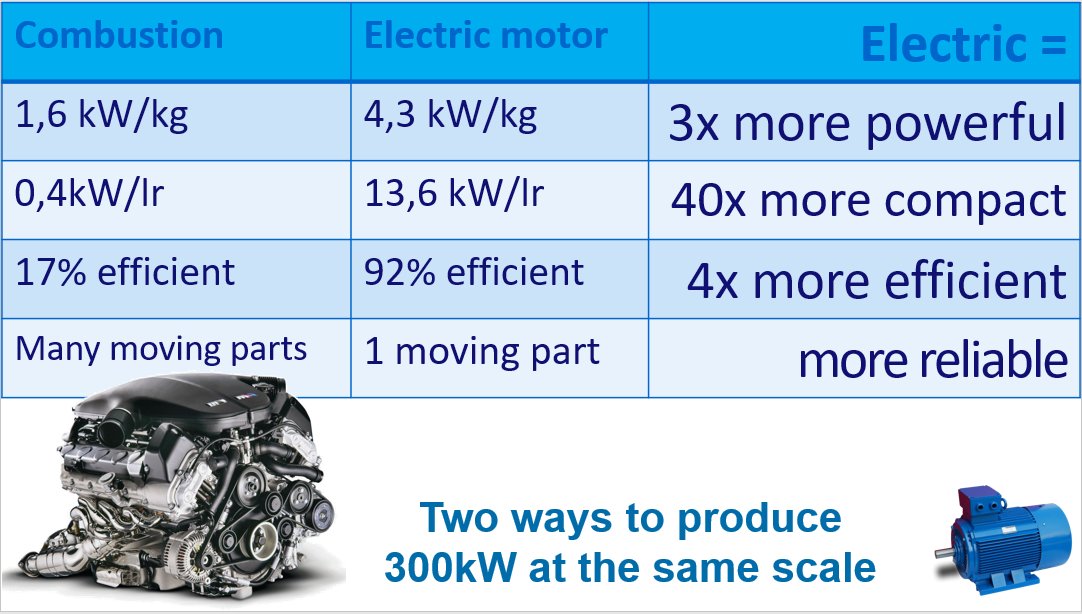
Actually, the higher the overcapacity of the combustion engine in normal use (e.g. for a car that can accelerate quickly) the the bigger the disadvantage of the combustion vehicle. Here the relatively slow and small Porsche already uses six time as much energy. 
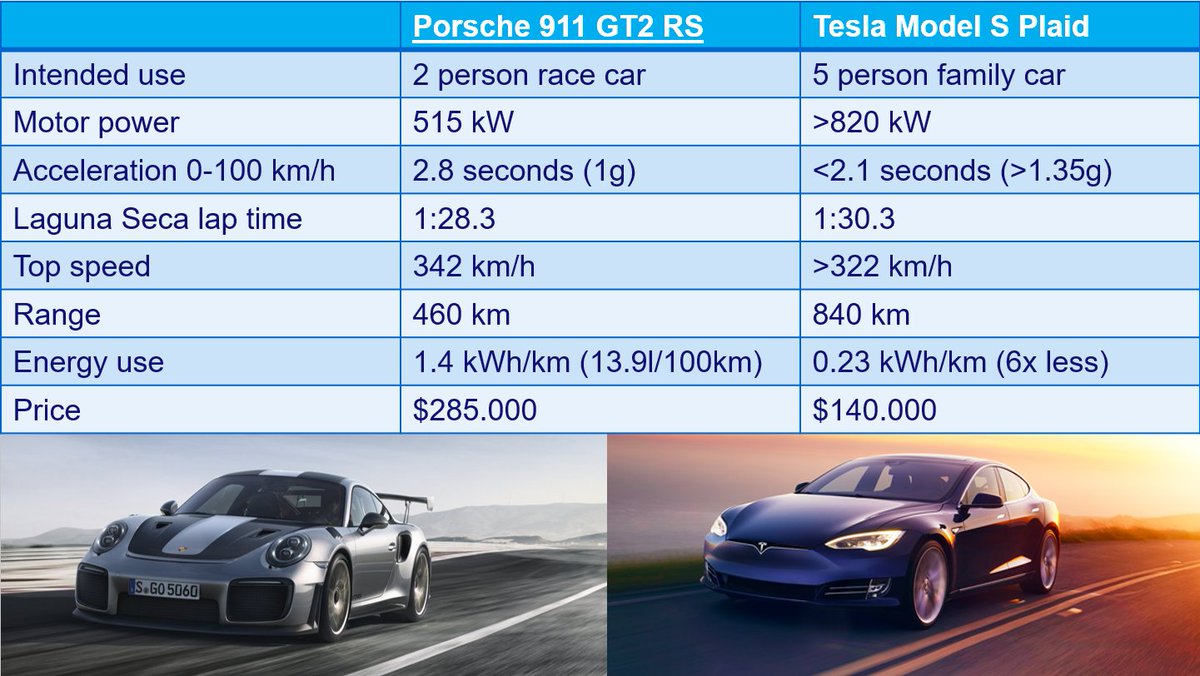
Then there's the losses when producing fuel from electricity. When you add that up you end up with around 87% energy losses versus 73% losses for the electric vehicle. So eFuels need over five times (73/13=5.6) more energy.
transportenvironment.org/press/e-fuels-…
transportenvironment.org/press/e-fuels-…
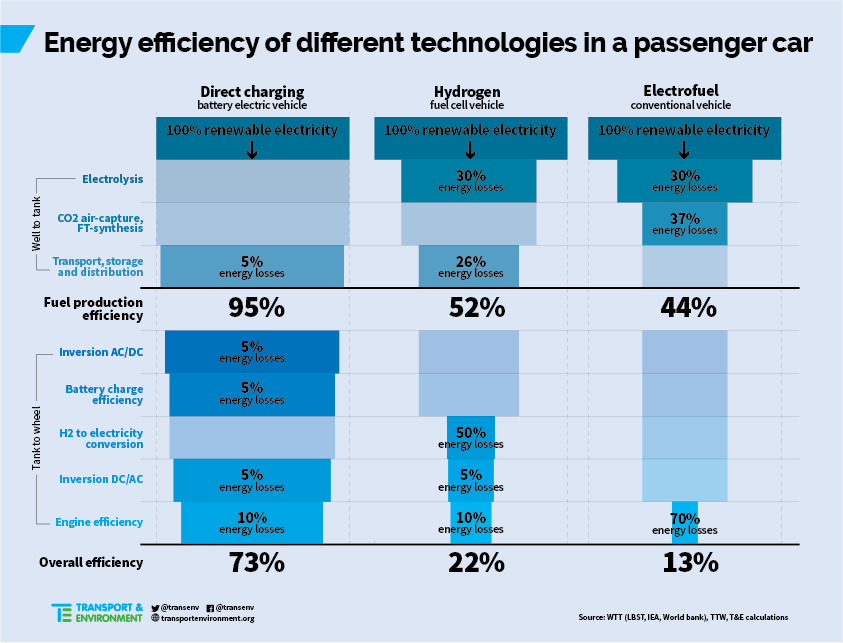
I think eFuels might be perfect for hard to electrify mobility like aviation. But building five times more windmills in order to protect an engine that is simply less efficient seems like a bad idea to me.
• • •
Missing some Tweet in this thread? You can try to
force a refresh

